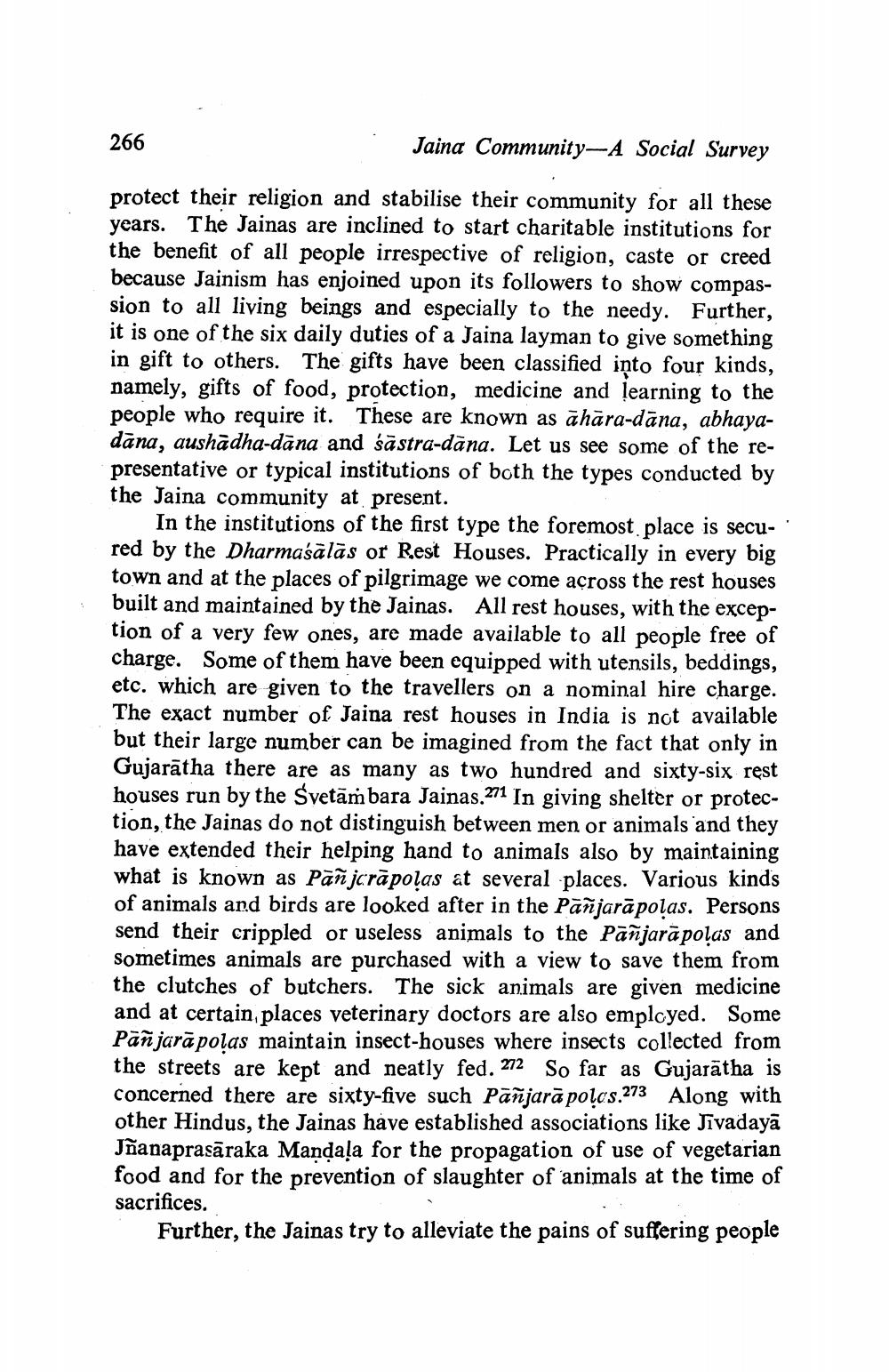________________
266
Jaina Community-A Social Survey
protect their religion and stabilise their community for all these years. The Jainas are inclined to start charitable institutions for the benefit of all people irrespective of religion, caste or creed because Jainism has enjoined upon its followers to show compassion to all living beings and especially to the needy. Further, it is one of the six daily duties of a Jaina layman to give something in gift to others. The gifts have been classified into four kinds, namely, gifts of food, protection, medicine and learning to the people who require it. These are known as āhāra-dāna, abhayadana, aushādha-dāna and śāstra-dāna. Let us see some of the representative or typical institutions of both the types conducted by the Jaina community at present.
In the institutions of the first type the foremost place is secured by the Dharmaśālās or Rest Houses. Practically in every big town and at the places of pilgrimage we come across the rest houses built and maintained by the Jainas. All rest houses, with the exception of a very few ones, are made available to all people free of charge. Some of them have been equipped with utensils, beddings, etc. which are given to the travellers on a nominal hire charge. The exact number of Jaina rest houses in India is not available but their large number can be imagined from the fact that only in Gujarātha there are as many as two hundred and sixty-six rest houses run by the Svetāmbara Jainas.271 In giving shelter or protec
on, the Jainas do not distinguish between men or animals and they have extended their helping hand to animals also by maintaining what is known as Pāñ jcrāpoļas at several places. Various kinds of animals and birds are looked after in the Pāñjarā polas. Persons send their crippled or useless animals to the Pāñjarā polas and Sometimes animals are purchased with a view to save them from the clutches of butchers. The sick animals are given medicine and at certain, places veterinary doctors are also employed. Some Pāñ jarā poļas maintain insect-houses where insects collected from the streets are kept and neatly fed. 272 So far as Gujarātha is concerned there are sixty-five such Pāñjarā poļos.273 Along with other Hindus, the Jainas have established associations like Jīvadayā Jñanaprasāraka Mandala for the propagation of use of vegetarian food and for the prevention of slaughter of animals at the time of sacrifices.
Further, the Jainas try to alleviate the pains of suffering people




